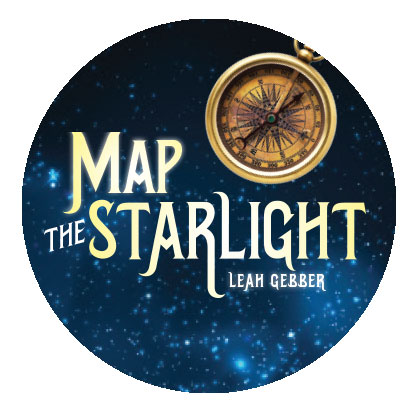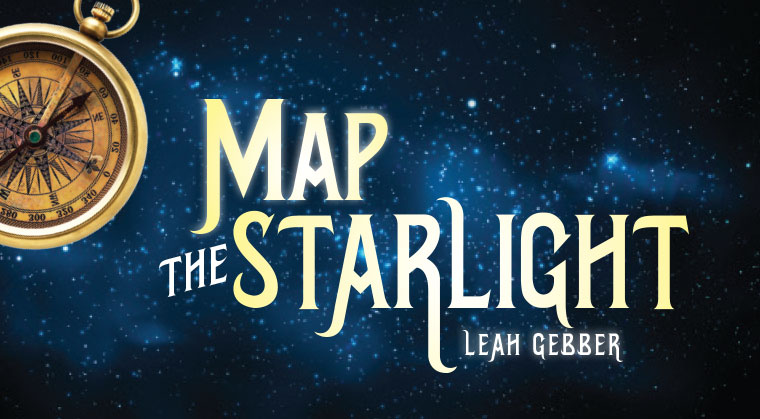Map the Starlight: Chapter 42

She turns to face him. “I did not come here for this. I came to tell you that you should be walking. But you offend me”

"My father thinks you are a Jew.”
Neemias looks up. The girl — Clara — stands in the doorway. Today, she wears blue, so pale that it seems to catch the light. She may be an angel from heaven.
He closes his fingers over the kamaya at his neck. “Is this why you gave me this amulet?”
She does not understand. He motions that she come closer and he takes a pen and a small piece of paper, and writes: Is this why you gave me the amulet?
She takes the paper in her hand, points at each word, and her lips move as she mouths out each syllable. She looks up at him, understanding glimmering in her eyes.
She thinks for a moment and then shrugs her shoulders. Not yes, not no.
“Do you think you are a Jew?”
He thinks for a moment. “I know that you are scholars, but no, I am not a Jew. The Jews are…”
Clara nods. He sees her waiting, face pensive. His words will hurt her, but he says them anyway; he must.
“The Jews have been rejected by G-d. When they refused to accept our savior, they were cast aside. In punishment, they are forced to wander the earth.”
She jumps up, her face white, her blue eyes bright with anger. “We have not been rejected! The reason we wander from place to place is because we are in exile. Galut. We still wait for the Mashiach, our redeemer to come.”
Ah, so she thinks all this is the prelude for something great and beautiful. He must disappoint her. “The redeemer has already come,” Neemias says gently.
Clara shakes her head, hard. She lifts one hand and her long, sculpted fingers wave through the air, as if to brush away his words. Maybe all the world is included in her gesture. “Do you think the redeemer has come? Do you think the world is perfect once more?” She puts one hand over her eyes, as if searching for something. “I do not see it! Do you? Do you see the wolf lying down with the lamb?”
She turns to face him. “I did not come here for this. I came to tell you that you should be walking. But you offend me.”
He sighs. He knows that he must walk, but he is a big man, and there is more of him to fall and injure. His legs feel strange, like a burden he must carry around, as when he returns from the market, a basket full of goods heavy from his arm.
He sets his palm against the wall and steadies himself. Before he can take a step, he must regain his balance.
He looks up, breathless. She is still there, watching him.
She points to the kamaya around his neck. “Do you know when I got this?”
The girl is agitated; all her coolness is gone. He can’t help but absorb her feelings, and it makes him weary of taking a step. “No.”
“This was given to me in a plague year.”
Plague. The Black Death. For some reason unknown, the plague had skipped over his small village. It was so tiny and cut off from the world that it was safe. He had only heard of the plague when he arrived in the big city; heard of the pustules that grew red and then black, and how a man could wake in the morning and eat a hearty breakfast and be dead by nightfall.
Why, in Paris every second house was empty. You could walk through the front door and find a woman’s looking glass on the bureau, as if she were about to lift it up and admire her eyes. But that would never happen, for all the inhabitants were dead.
(Excerpted from Family First, Issue 585)
Oops! We could not locate your form.


